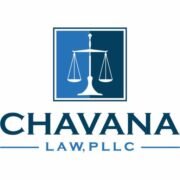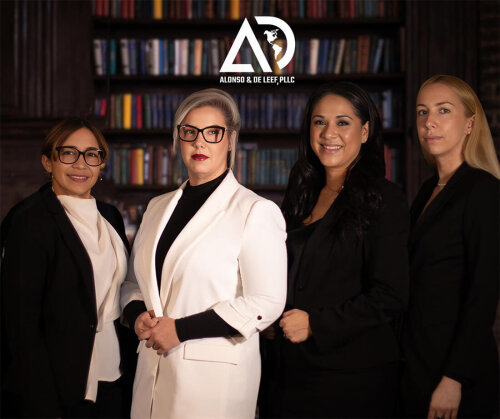Best Drugs & Medical Devices Lawyers in Houston
Share your needs with us, get contacted by law firms.
Free. Takes 2 min.
List of the best lawyers in Houston, United States
About Drugs & Medical Devices Law in Houston, United States
Drugs and medical devices law covers the regulation, safety, liability, and litigation surrounding pharmaceuticals and medical equipment. In Houston, like much of the United States, these legal matters are governed by a combination of federal and state laws. These laws are designed to ensure the safety and efficacy of products that reach consumers. Regulatory agencies such as the Food and Drug Administration (FDA) oversee testing, approval, and monitoring of drugs and devices, while both state and federal courts handle related litigation. Individuals who have suffered injury or harm due to a defective drug or medical device can seek compensation through product liability claims.
Why You May Need a Lawyer
People often need legal assistance in the area of drugs and medical devices for several reasons. Common situations include:
- Experiencing adverse reactions or injury after taking a prescription or over-the-counter drug
- Being harmed by a medical device such as implants, pacemakers, or surgical equipment
- Participating in a class action lawsuit regarding a recalled drug or device
- Receiving a recall notice or learning about potential risks after a drug or device has come to market
- Dealing with denied insurance claims or disputes over medical expenses caused by drug or device-related injuries
- Understanding settlement offers from pharmaceutical companies or device manufacturers
- Need for representation in court or negotiations with manufacturers or insurers
- Cases involving wrongful death linked to unsafe drugs or devices
Engaging a qualified attorney ensures that your rights are protected and that you have the legal support needed to navigate these complex and sensitive cases.
Local Laws Overview
In Houston, legal claims related to drugs and medical devices are affected both by Texas state law and federal regulations. Key aspects include:
- Product Liability Laws: Texas law allows individuals to pursue compensation under theories such as strict liability, negligence, and breach of warranty if harmed by a defective product. This includes pharmaceuticals and medical devices.
- Two-Year Statute of Limitations: Victims generally have two years from the date of injury to file a lawsuit, though there can be exceptions based on when the injury was discovered.
- Comparative Fault: Texas follows modified comparative fault rules. If a person is found to be more than 50 percent at fault, they cannot recover damages.
- FDA Regulation: Although FDA approval can impact litigation, it does not always shield manufacturers from liability if the product caused harm due to design defects, manufacturing errors, or insufficient warnings.
- Medical Malpractice Laws: Some drug and device-related injuries may intersect with malpractice claims against health care professionals, subject to additional legal requirements in Texas.
Frequently Asked Questions
What counts as a defective drug or medical device?
A defective drug or medical device is one that causes harm because of its design, manufacturing process, or inadequate warnings or instructions.
Is there a time limit to file a claim in Houston?
Yes. Generally, you have two years from the date you discovered or should have discovered the injury to file a lawsuit in Texas.
Can I file a lawsuit if the drug or device was FDA approved?
Yes. FDA approval does not prevent individuals from filing claims if the product was unsafe, defective, or lacked adequate warnings.
What types of compensation can I seek?
You may seek compensation for medical expenses, lost wages, pain and suffering, and potentially punitive damages in some cases.
Do I have to join a class action lawsuit?
No. You can file an individual claim or join a mass tort or class action depending on your situation and the advice of your attorney.
What if I learn about the risks long after using the product?
Depending on when you discovered the harm, you may still have time to file. This is known as the discovery rule in Texas law.
Are doctors responsible for prescribing defective drugs?
Doctors can be liable in some cases, especially if they failed to warn about known risks, but most claims are against manufacturers.
What should I do if I receive a recall notice?
Follow the instructions in the recall, seek medical advice, and consider contacting a lawyer to understand your legal options.
Can I file a claim on behalf of a loved one?
Yes. Family members may have standing to file claims on behalf of an incapacitated person or in cases of wrongful death.
How much does it cost to hire a lawyer for these cases?
Many attorneys take these cases on a contingency fee basis, meaning you only pay if you win compensation.
Additional Resources
If you have questions or need help related to drugs and medical devices in Houston, consider these resources:
- Food and Drug Administration (FDA): For information on drug recalls, safety alerts, and approved products.
- Texas Department of State Health Services: For state-level healthcare regulations and complaints.
- Houston Bar Association: For lawyer referrals and legal information.
- Consumer Product Safety Commission: For alerts on recalled medical devices.
- American Association for Justice: For locating attorneys specializing in defective drugs and devices.
Next Steps
If you or a loved one has been harmed by a drug or medical device, act quickly to protect your rights. Begin by documenting your experience, including medical records and any communication from healthcare providers or manufacturers. Consult with a qualified attorney in Houston who specializes in drugs and medical devices law to evaluate your case and determine your legal options. Many law firms offer free consultations for these cases. Acting soon ensures you meet important legal deadlines and maximizes your potential for fair compensation.
Lawzana helps you find the best lawyers and law firms in Houston through a curated and pre-screened list of qualified legal professionals. Our platform offers rankings and detailed profiles of attorneys and law firms, allowing you to compare based on practice areas, including Drugs & Medical Devices, experience, and client feedback.
Each profile includes a description of the firm's areas of practice, client reviews, team members and partners, year of establishment, spoken languages, office locations, contact information, social media presence, and any published articles or resources. Most firms on our platform speak English and are experienced in both local and international legal matters.
Get a quote from top-rated law firms in Houston, United States — quickly, securely, and without unnecessary hassle.
Disclaimer:
The information provided on this page is for general informational purposes only and does not constitute legal advice. While we strive to ensure the accuracy and relevance of the content, legal information may change over time, and interpretations of the law can vary. You should always consult with a qualified legal professional for advice specific to your situation.
We disclaim all liability for actions taken or not taken based on the content of this page. If you believe any information is incorrect or outdated, please contact us, and we will review and update it where appropriate.















